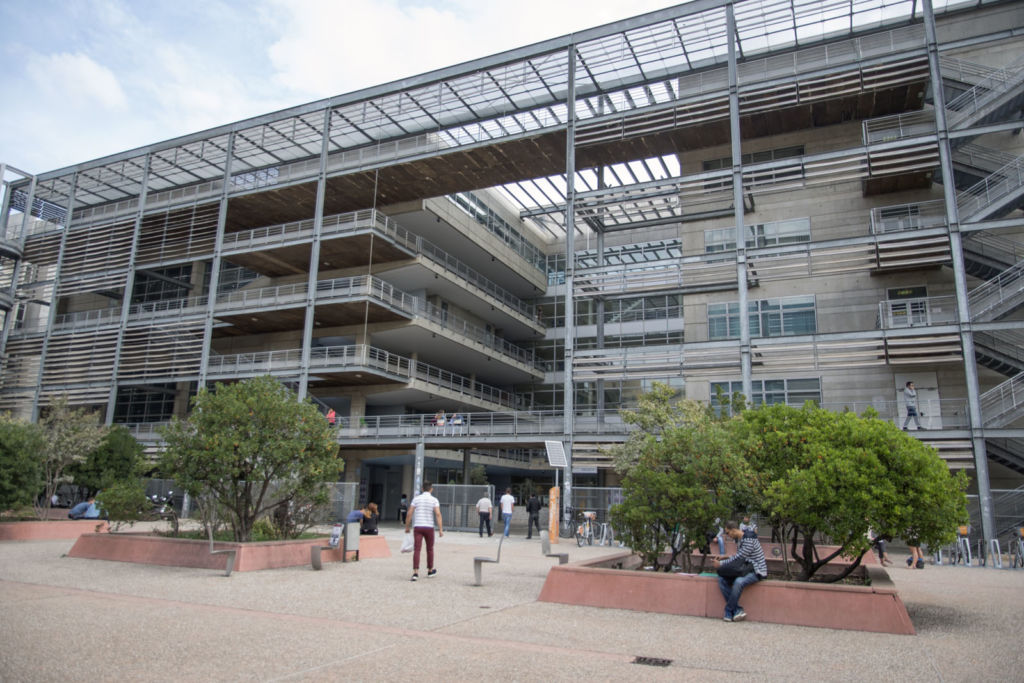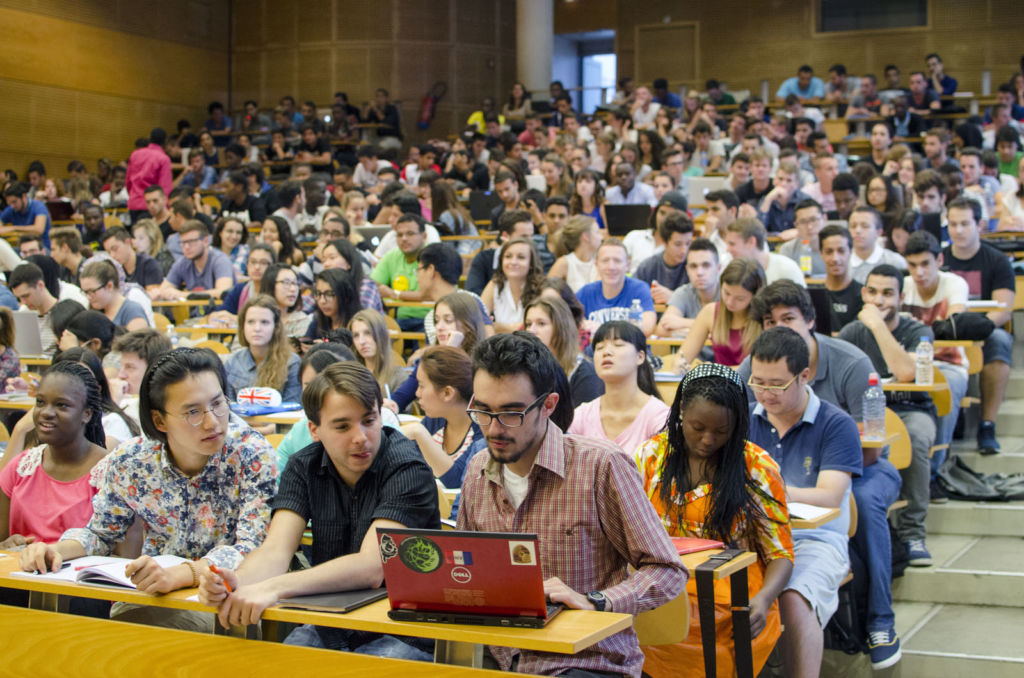At Richter, the Faculty of Economics cultivates openness
International programs, public lectures, immersion days for high school students, links with the professional world... at the Faculty of Economics, everything is done to promote the institution's openness to society.

Photo © Miss Buffet Froid
Although its cubic silhouette is now familiar to users of the Richter campus, the Faculty of Economics actually has its roots in the city center. In the early 1970s, lawyers and economists still shared the same premises within the Faculty of Law. The economics department gained its independence (and new premises) when it moved to the Richter site in 1994. Since then, the department has grown considerably, now welcoming some 2,600 students each year, many of whom come from other parts of the world: Africa, Europe, but also and above all Asia.
This strong international flavor inspired the creation of a diploma, the DU "Preparation for University Studies for Non-French-Speaking Students. " Dean of the faculty, François Mirabel explains the principle: "This diploma aims to avoid a situation that was once common: students arriving with no knowledge of French and finding themselves completely lost. Today, validation of the university diploma is a prerequisite for entry into L1." The program includes French as a foreign language courses, as well as the essentials of first-year subjects. The faculty also offers all its students an international track that includes some courses taught in English. This is an asset for attracting foreign students, but also for French students who wish to develop an international profile.
High school students in immersion

Photo © Miss Buffet Froid
In terms of training, the faculty offers a general bachelor's degree program and four master's degrees: currency, banking, finance, and insurance; management, public policy, and economic evaluation; energy, environment, transportation, and agriculture; and finally, a master's degree in industrial economics and networks, focused on new technologies. Research is carried out within two joint research units: Art'dev and Lameta. "Many of the researchers in these laboratories are working on topics related to MUSE's areas of focus: development, health, the environment, etc.," notes François Mirabel. While research and education are at the heart of the faculty's activities, they do not sum up its philosophy.
Like the Richter campus, which is open to the city, the faculty cultivates its ties with society. It regularly welcomes high school students from across the region for immersion days. "We believe it is important to show high school students what university life is really like, but also to present the courses and career opportunities offered by our degrees," explains the dean. Five or six times a year, high school students and teachers arrive for a busy day: a presentation of the faculty and a tour of the university library in the morning, lunch at the university restaurant, then lectures in the auditorium in the afternoon. The high school students leave in the evening with a clearer idea of what everyday life is like for a student, and perhaps a new vocation in mind.
The faculty as seen by a student
Thibault Clément, first-year master's student in behavioral economics and decision-making
"I arrived in Montpellier this year after completing a bachelor's degree in Dijon so that I could enroll in the master's program in "behavioral economics and decision-making," which could be described as a mix of psychology and economics. There are very few programs on this subject, which interested me greatly, so I came to Montpellier to do a year of M1.
I really like it here and have discovered interesting things such as the LEEM, which is an experimental economics laboratory where students are put in real-life situations—a trading room simulation, for example— so that they can then analyze their behavior... It's a real plus.
At the same time, I'm currently doing an internship at the faculty. I'm working on preparing a day of meetings between faculty alumni and current students to be held on September 15. The economics faculty wants to develop its presence on the new university alumni network, Resum. My job is to identify our alumni, add them to a database and then contacting them to encourage them to participate in this event."
Key figures
- 8,700 square meters
- 2,545 students
- 59.3% international students
- 16 administrative staff
- 37 Professors teachers
- 4 Master's degrees (and 13 courses)
- 1971: Creation of the UER (later UFR) in economics
- 1994: Installation of a fully operational university department on the Richter site
The initiative
With its "Amphis de l'éco" series, the Faculty of Economics is contributing to the debate on the major issues of our time. Launched last year, this series of conferences brings together the general public and prestigious guests: anthropologist Paul Jorion and economists Agnès Benassi and Christian De Perthuis took to the podium in 2016 to discuss issues such as the future of the euro and climate change.
In 2017, the "Amphis" are back, with guests including the Governor of the Bank of France, expected in September, and climate expert Jean-Marc Jancovici in October. These events are free and open to all.